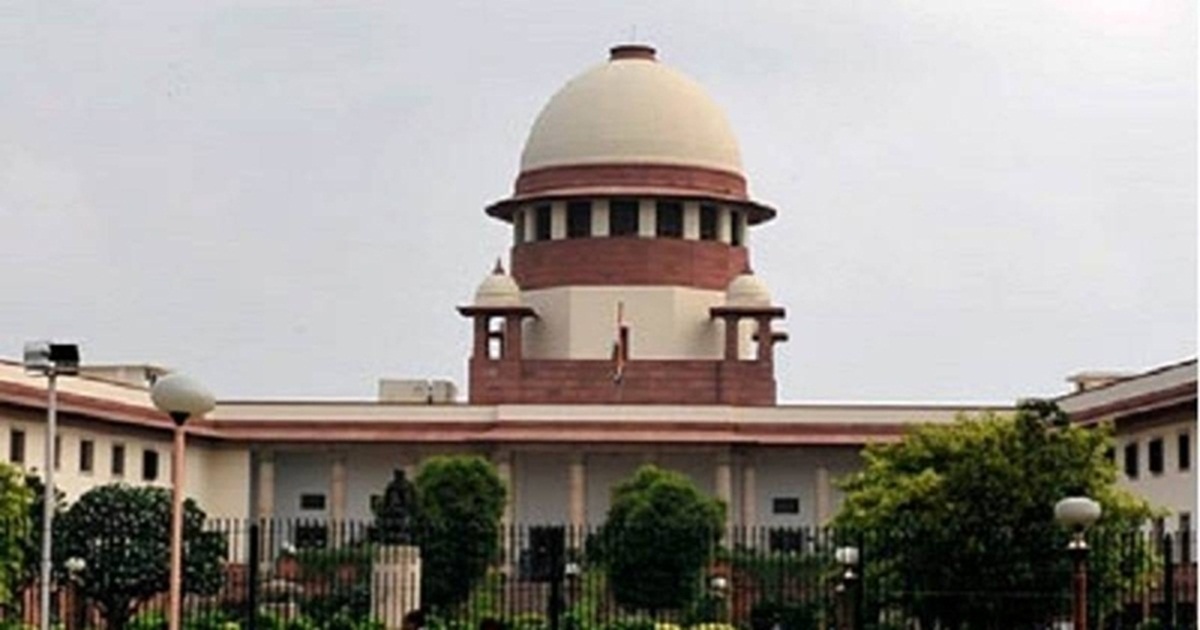New Delhi: The Supreme Court on Thursday reserved its interim order on three contentious issues raised in a series of petitions challenging the constitutional validity of the Waqf (Amendment) Act, 2025. The matter was heard by a bench led by Chief Justice of India BR Gavai and Justice AG Masih, who concluded a three-day marathon hearing involving top legal minds from both sides.
At the heart of the dispute lies the controversial power granted by the amended Act to denotify waqf properties, including those declared as waqf by courts, through long-standing usage (waqf-by-user), or waqf created by deed.
Senior advocates Kapil Sibal, Rajeev Dhavan, and Abhishek Singhvi, appearing for the petitioners, launched a strong attack on the amended law, arguing it marked a “complete departure from historical legal and constitutional principles.”
“This is a case about the systematic capture of waqf properties. The government cannot dictate what issues can be raised,” Kapil Sibal submitted before the bench. He also alleged that the Act facilitates “the capture of waqf properties through a non-judicial process.”
The petitioners sought interim relief on three main grounds:
- Challenging the power of the authorities to denotify waqf properties declared by courts or through traditional usage.
- Objecting to the composition of state waqf boards and the Central Waqf Council, arguing that only Muslims (except ex-officio members) should manage waqf institutions.
- Questioning a provision that allows a district collector to declare a property as government land after an inquiry, thereby excluding it from being treated as waqf.
Representing the Centre, Solicitor General Tushar Mehta defended the legislation and opposed any interim stay. He stressed that “waqf is inherently a secular concept” and therefore the Act should not be stalled. Citing the “presumption of constitutionality”, he urged the Court to allow the law to function unless proven unconstitutional.
The Union Ministry of Minority Affairs had earlier filed a 1,332-page preliminary affidavit on April 25, asserting the validity of the new law and rejecting demands for a “blanket stay.”
The Waqf (Amendment) Act, 2025 was passed by Lok Sabha with 288 votes in favour and 232 against, and later cleared in the Rajya Sabha with 128 ayes and 95 noes, receiving Presidential assent on April 5. It was officially notified last month.







buying cheap clomiphene without dr prescription can i buy generic clomiphene no prescription where to buy generic clomiphene no prescription can i buy generic clomiphene no prescription how to buy cheap clomiphene price where can i buy clomid without dr prescription get clomid for sale
Thanks for putting this up. It’s well done.
The thoroughness in this section is noteworthy.
buy zithromax 500mg generic – buy tindamax 500mg online purchase metronidazole
buy rybelsus 14 mg without prescription – rybelsus 14 mg uk buy periactin 4mg
order domperidone generic – domperidone sale order cyclobenzaprine pill
buy augmentin 375mg sale – https://atbioinfo.com/ buy generic ampicillin for sale
purchase esomeprazole – https://anexamate.com/ esomeprazole 40mg over the counter
coumadin 2mg pills – https://coumamide.com/ order cozaar generic
buy meloxicam 15mg – relieve pain order mobic 7.5mg generic
buy deltasone 10mg – https://apreplson.com/ buy deltasone 40mg for sale
order generic amoxil – https://combamoxi.com/ brand amoxicillin
fluconazole ca – this diflucan price
order cenforce without prescription – order cenforce sale cenforce for sale online
buy liquid tadalafil online – https://ciltadgn.com/ tadalafil liquid fda approval date
ranitidine usa – this buy zantac 300mg pill
cheap viagra online in uk – https://strongvpls.com/# viagra cheap india
More posts like this would make the blogosphere more useful. online
Proof blog you possess here.. It’s severely to on high status belles-lettres like yours these days. I justifiably appreciate individuals like you! Go through care!! withdrawal from prednisone
This is the type of advise I find helpful. https://ursxdol.com/clomid-for-sale-50-mg/
More delight pieces like this would urge the web better. prohnrg
With thanks. Loads of conception! https://ondactone.com/spironolactone/
More posts like this would prosper the blogosphere more useful.
https://doxycyclinege.com/pro/topiramate/
Good blog you possess here.. It’s obdurate to find strong calibre belles-lettres like yours these days. I justifiably appreciate individuals like you! Go through guardianship!! http://nwspprs.com/?format=simple&action=shorturl&url=https://www.startus.cc/company/stockholm%20
I’ll certainly carry back to review more. http://www.orlandogamers.org/forum/member.php?action=profile&uid=28880
dapagliflozin sale – https://janozin.com/# forxiga 10mg drug
orlistat buy online – https://asacostat.com/ xenical 60mg pill
More articles like this would remedy the blogosphere richer. https://myrsporta.ru/forums/users/rejvp-2/
You can conserve yourself and your stock close being wary when buying prescription online. Some druggist’s websites operate legally and sell convenience, secretiveness, rate savings and safeguards over the extent of purchasing medicines. buy in TerbinaPharmacy https://terbinafines.com/product/sildalis.html sildalis
More posts like this would persuade the online play more useful. TerbinaPharmacy
More posts like this would add up to the online play more useful.
搭载智能站群程序,自动化搭建与管理,为SEO项目提供核心驱动力。站群程序
Tham gia cộng đồng game thủ tại Go88 để trải nghiệm các trò chơi bài, poker phổ biến nhất hiện nay.
kuwin sở hữu kho game đa dạng từ slot đến trò chơi bài đổi thưởng, mang đến cho bạn những giây phút giải trí tuyệt vời.
Khám phá thế giới giải trí trực tuyến đỉnh cao tại MM88, nơi mang đến những trải nghiệm cá cược thể thao và casino sống động.
Khám phá thế giới giải trí trực tuyến đỉnh cao tại MM88, nơi mang đến những trải nghiệm cá cược thể thao và casino sống động.
Với giao diện mượt mà và ưu đãi hấp dẫn, MM88 là lựa chọn lý tưởng cho các tín đồ giải trí trực tuyến.